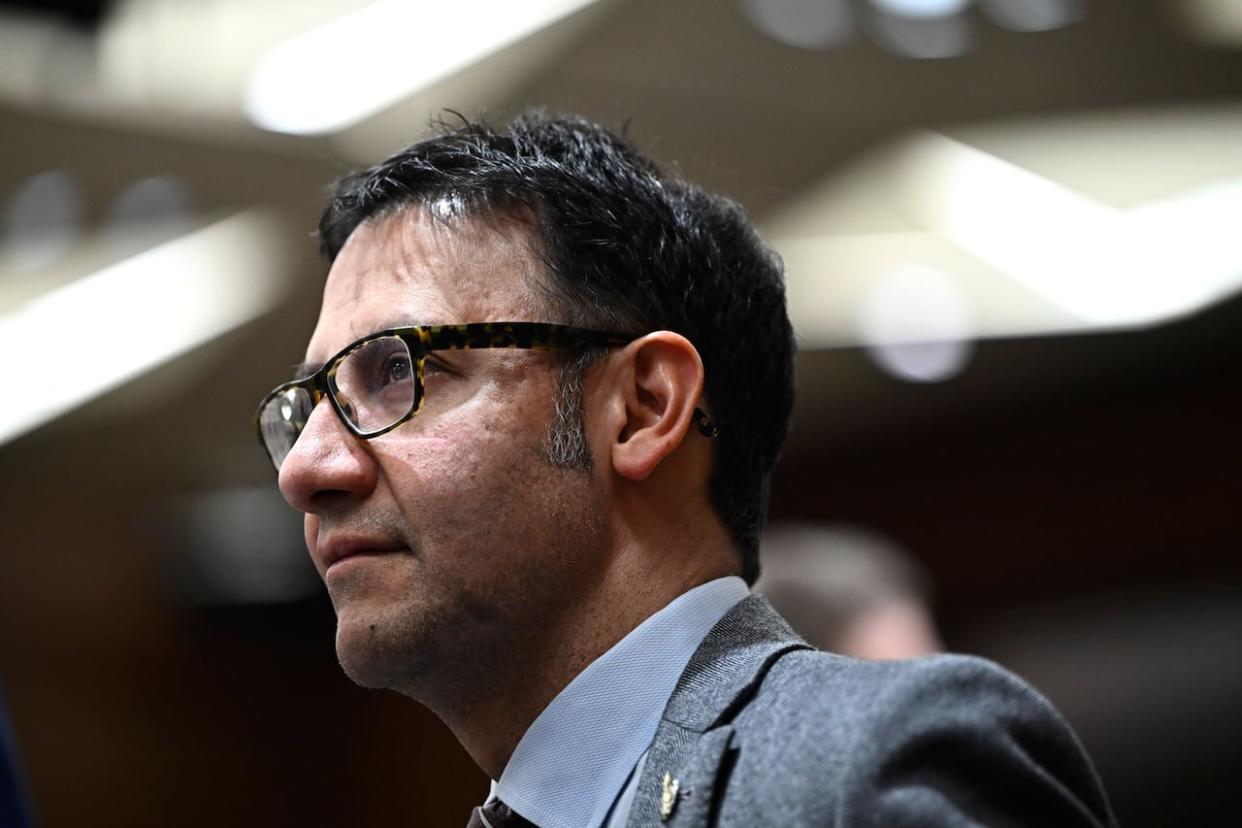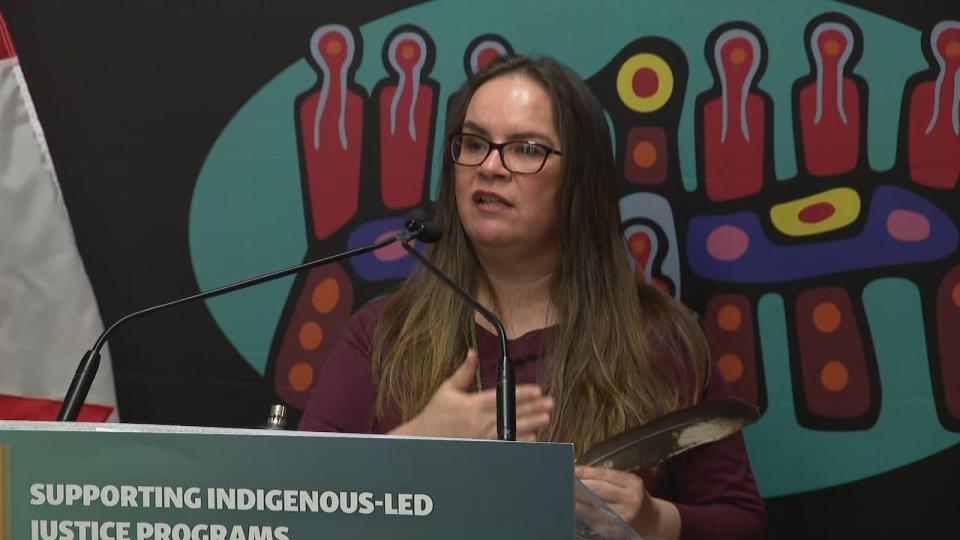Federal minister announces $2.1M to address Indigenous overrepresentation in justice system

The federal government says it will provide more than $2.1 million in funding to address the overrepresentation of Indigenous people in Canada's criminal justice system.
Arif Virani, justice minister and attorney general, said at a news conference on Tuesday that the money will fund three projects at Aboriginal Legal Services (ALS) in Toronto. Virani was joined by Chantell Barker, ALS's executive director, and MP Julie Dabrusin, who represents Toronto-Danforth.
Indigenous people make up about five per cent of the adult population in Canada, but account for 28 per cent of all federally sentenced individuals and 32 per cent of all individuals in custody, according to Public Safety Canada. Indigenous women account for 50 per cent of all federally incarcerated women.
"The statistical overrepresentation of First Nations, Inuit and Metis people in the criminal justice system is plainly shocking," Virani said in Toronto.
"The cause of that overrepresentation in our justice system must be addressed and what we are doing as a government is we're showing our dedication to doing exactly just that."
Virani, MP for Parkdale-High Park, said the statistics show how discrimination manifests itself in the criminal justice system. The funding is an attempt by the government to address systemic racism and advance reconciliation, he added.
In a news release on Tuesday, the government said Indigenous people are overrepresented in the justice system not only as accused and offenders but also as victims and survivors.
"Access to Indigenous-led justice services across Canada continues to be an important way for achieving systemic change in our justice system. That is why programs and resources are needed in every stage of the justice process to create this change," the government added.
Funding aimed at improving outcomes
The first project, which will receive more than $1.2 million, will support initiatives under the Community Council Program, a criminal diversion program for Indigenous young offenders in Toronto.
These initiatives include the Giiwedin Anang Council, an Indigenous family dispute resolution program that supports civil family mediation, and the Gladue Aftercare program, a community-based program that provides the accused with services to support their healing.

Chantell Barker, executive director of Aboriginal Legal Services, said in a news release: "This funding allows Aboriginal Legal Services to provide a safe space for Indigenous people to speak their truth, address root causes, and restore balance within themselves, their families and the community." (CBC)
The second project, which will receive $598,309, will help ALS write Gladue reports, which are pre-sentencing reports prepared following a guilty plea or finding of guilt. Gladue reports present circumstances of a self-identified Indigenous accused's life for a judge to consider while deciding on a sentence. These can include personal and community histories, and traumas such as colonialism and its ongoing impacts.
The third project, which will receive $249,120, will help ALS prepare a needs assessment for the Toronto Courthouse and Bail Centre Project. The assessment, which is underway, will address the challenges and opportunities presented by the centralization of the Gladue Courts in Toronto.
"Collectively, these efforts will help to improve outcomes for Indigenous people when they come into contact with the justice system," Virani said.
The funding is being provided through the government's Indigenous Justice Program, which supports Indigenous community-based justice programs that offer alternatives to "mainstream justice processes in appropriate circumstances."
'Culturally-responsive alternatives' needed: official
Barker, who also spoke at the news conference, says it's important for the work to be led by members of Indigenous communities.
"We've been impacted by colonization. We too have been impacted by the intergenerational impacts, but we also know how to heal from it and how to break those cycles," Barker said.
In a news release, Barker said the announcement is "exciting" for the organization.
"This funding allows Aboriginal Legal Services to provide a safe space for Indigenous people to speak their truth, address root causes, and restore balance within themselves, their families and the community," Barker said.
"For reconciliation to occur, we must work together to address the over-incarceration of Indigenous people in the justice system by recognizing the importance of culturally-responsive alternatives and solutions."


